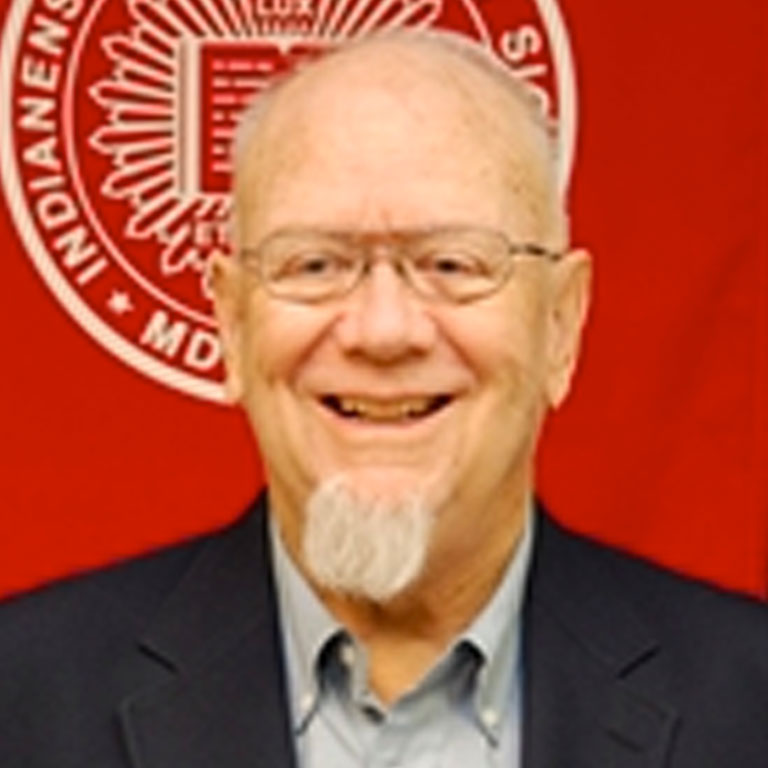Division 49 APA Dr. Rex Stockton Memorial

Rex Stockton: The Life and Impact of a legend in the field
After a long, productive and happy life, Rex Stockton passed away the July 1, 2022 after a series of health issues at 86 years old. Rex was a legend in the field of group therapy, who had a profound impact on the field. His research spanned several decades and was both prolific (over 100 articles and book chapters) and impactful. He received national awards 15 times during his 53 years of service at Indiana University, as well as recognition by the University as a Chancellor’s Professor, the highest accolade given by the University.
Rex was a talented and hard-working researcher, who at the peak of his career, was the most prolific publisher of group therapy researcher in the field. He was one of the first people to actually study therapy groups, and his work was profoundly influential. He once told me the context for his research on feedback. He described that he began practicing and teaching group in the 1970’s, an era of “anything goes” in group therapy, with group leaders encouraging immediate negative feedback of other members and intense criticism and “radical honesty” seen as the ultimate healing process. He described members entering groups and immediately being berated and harshly criticized.
Rex did not believe that this was as helpful as the experts at the time believed and sought to test out the impact of early corrective feedback. His research with Keith Morran, his former student and long-time collaborator and research partner, and their students found that early corrective feedback was unhelpful, leading members instead to dismiss the message as being in bad faith and seeing the deliverer of the message in negative terms. His research also found that members preferred feedback “sandwiched” between positive feedback or frontloaded with positive feedback (Morran et al, 1998). This was a radical finding at the time and led groups to move away from the “anything goes” approach that had hitherto been considered good group leadership and desirable member behavior.
It is hard to overstate the impact of this research. While we now see the importance of the working alliance and group cohesion and understand their impact on premature dropout and client worsening, in those days, these concepts were alien to the field and the subject of debate between those with different theoretical orientations. The radical idea of testing out the premises behind group theories ushered in a new dawn of research into group therapy processes, which along with his peers of the time, led to the burgeoning field of process-outcome research we have today.
Rex also produced a video series to train neophyte group therapists that has been used to train tens of thousands of leaders in master’s and doctoral training programs. This series became so popular that he became a celebrity at conventions. My earliest memories of him included accompanying him to conventions where students and recent graduates took pictures with him and treated him like a rock star. Rex was always unfailingly kind and generous with his time and always took time to shake hands and welcome those students to the field. He cared deeply that people learned to love group.
Rex was also deeply involved in leadership. He began his career at IU in the Dean’s office and later took a variety of positions at IU, helping with the Foundation Board as well as with the Office of Research. Rex was President of Division 49 as well as taking leadership positions in ASGW, of which he was a founder member.
Rex also received numerous awards for mentorship, and they were well deserved. His students (Any Nitza, Leann Terry, Lorraine Guth, Felito Aldarondo, Rick Brown, myself) from Indiana University’s Counseling Psychology program went on to be very involved in group work. Several went on to become Presidents of Division 49 and ASGW, others became active in leadership in Division 49 and ASGW. I remember Rex meeting two of my former students at a convention and he noted with pride that they were metaphorically his “grandchildren”.
His students meant a great deal to him. Whenever we discussed his influence on us, we noted that he was not only a great teacher but also a great mentor. As an advisor he encouraged us to present and publish, often co-presenting with us until we found our feet. He also showed us how to lead. We often commented that we learned much about how to lead from watching how he did it. He was masterful at managing tricky situations and we marveled at how his unfailing politeness and kindness worked hand in hand with a keen sense of political strategy. Over the years many of us stayed in touch with him, visiting him or calling him. He was a beloved mentor who eventually became a friend and colleague. We were proud to have him in our lives and the better for it.
In his later career, Rex focused on working to improve the lives of those in Sub-Saharan Africa, focusing on educational group work efforts around mitigating the AIDS crisis. He spent twenty years traveling back and forth, mentoring graduate students along the way and building research into his projects to ensure that they were successful. As ever, Rex combined projects that he felt were important with research to assess their merits. He was a true Scientist-Practitioner.
Rex was married to Nancy Stockton, who first worked at and then directed the university counseling center at Indiana University and his daughter, Lesley, son David and three grandchildren.
Rex was a legend in the field. He will be missed dearly and leaves a wonderful and enduring legacy.
Morran, D.K., Stockton, R.A., Cline, R., & Teed, C.M. (1998). Facilitating Feedback Exchange in Groups: Leader Interventions. The Journal for Specialists in Group Work, 23, 257-268.
Martyn Whittingham, Ph.D.

